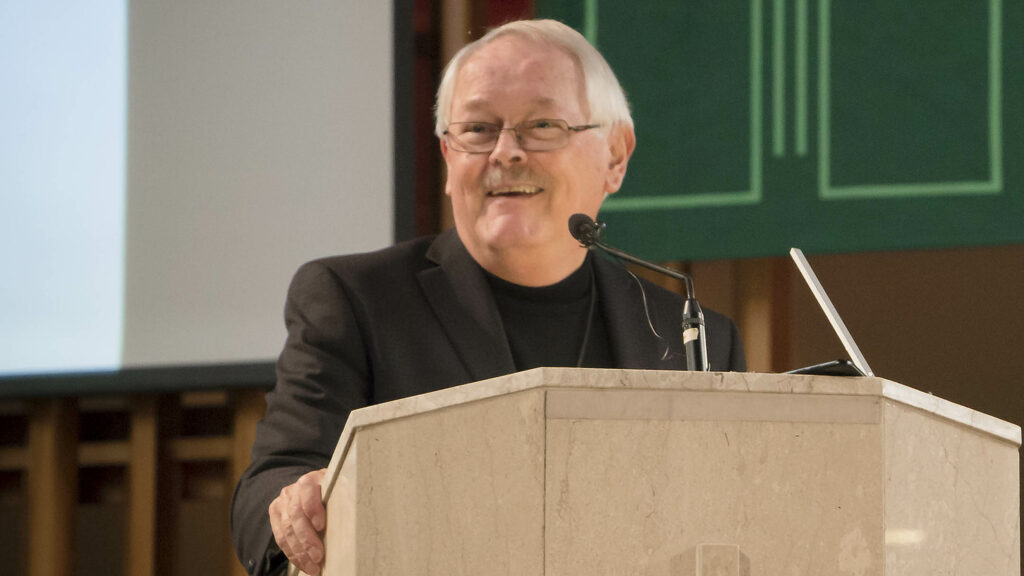Several years ago, I was invited to speak to a group of students at a Catholic university. The invitation came with a request and a caveat. I was to speak on chastity, but ideally, I was to avoid using the word. The dean of theology, who had invited me, had appraised the situation this way: perhaps more than anything else, the students need a challenge to chastity, but they are so turned off by the word that if we mention it in the title, very few will show up.
His hunch was right on both scores, the need for chastity in their lives and their aversion to the word. That’s also true for our culture.
For many today, the word chastity has negative connotations. Outside of a constantly shrinking number of select church circles, the word chastity sets off mostly negative alarms. Within our highly secularized and sophisticated world, for the most part chastity is identified with naiveté, with sexual timidity, with religious fundamentalism, with a toxic over-emphasis on sexual purity, with a lack of sophistication, and with something that perhaps made more sense in another age. Commonly, the notion is ridiculed, even in some religious circles. Very few people today dare talk about saving sex for marriage or about chastity as virtue.
What’s behind this? Why this negativity and disdain towards the word chastity?
Partly this is based on a number of popular perceptions. Chastity is often seen as grounded in a religious fundamentalism, which our culture today either disdains or pities (“Chastity for Jesus”). As well, the notion of chastity is seen as a product of the church’s long-standing, one-sided emphasis on virginity and celibacy and its failure to articulate a healthy, robust spirituality of sex. It’s hard to argue with perceptions, except to say that the reasons for the demise of the concept of chastity in our culture are much more complex than this.
Admittedly, our catechesis about chastity is part of the problem. My suspicion is that a good number of people are negative vis-à-vis the notion because of how the concept has been presented to them. Our churches and moral teachers have to assume some of the blame and admit that far too often the concept of chastity has been presented, however unintentionally, precisely as a naiveté, a repression, and as an over-emphasis on sexual purity. There’s a parallel here to how atheism finds its ground. Just as so much atheism is a parasite feeding off bad religion, so too much of the negativity towards the concept of chastity is a parasite feeding off unhealthy religious teaching.
However, our culture’s negativity towards the notion of chastity feeds off more than a less-than-healthy catechesis. The culprit? Sophistication as a virtue that is an end in itself. In short, our culture prizes personal sophistication above most everything else, and when sophistication is so highly prized, chastity easily looks like naïvete and ignorance.
Is it? Is chastity a naïvete, an ignorance? At the end of the day, is the notion of chastity a sexual repression, an unhealthy timidity, a toxic over-emphasis on sexual purity, a religious fundamentalism, a pitiable pre-sophistication? Admittedly, that can sometimes be the case. However, here’s the case for chastity.
In 2013, Donna Freitas, the author of a number of books on sexuality and consent, published a study entitled, The End of Sex: How Hookup Culture is Leaving a Generation Unhappy, Sexually Unfulfilled, and Confused about Intimacy. That title is the book in caption. Nowhere in the book (and for this she has been unjustly criticized by some church groups) does she ever say that what is happening in our culture today in terms of soulless sex is wrong or sinful. She doesn’t have to. She simply spells out the consequences – unhappiness, confusion, sexual depression.
A generation earlier, the renowned educator Allan Bloom, writing out of a purely secular perspective, came to the same conclusion. Looking at the bright, very-sophisticated young students he was teaching, he concluded that the very unbridled sophistication they so prided themselves in (which he termed “the absence of chastity in their lives”) had this effect in their lives: it left them “erotically lame”.
And so I submit that chastity merits another look from our culture. There’s first-naïvete (childishness) and there’s second-naïvete (childlikeness). There’s hook-up sex and there’s soul-sex. There’s religious fundamentalism and there’s the wisdom of divine revelation. There’s the over- emphasis on sexual purity and there’s the dehumanizing disrespect for others (that the #Me Too is standing up to). There’s a certain ennui and fatigue in an ultra-sophistication that believes all taboos may be broken, and there’s a vibrancy and happiness that’s felt in keeping your shoes off before the burning bush. Note, in every one of these dualisms, chastity speaks for soul, for wisdom, for respect, and for happiness.
-Rev. Ronald Rolheiser, was born in Cactus Lake, Sask. He is the president of the Oblate School of Theology in San Antonio, Texas.

